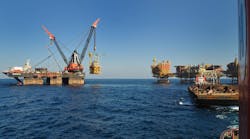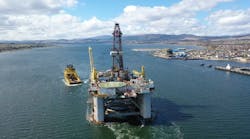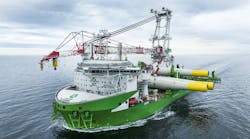Corporate Dealmakers Roundtable: Focus on Energy and Technology
Gene Kliewer, Technology Editor, Subsea & Seismic
HOUSTON-- The business of energy continues even while the domestic industry waits to see what the new US Bureau of Ocean Energy Management, Regulation, and Enforcement regulations hold in store for US Gulf of Mexico drillers. The 6th Annual Mergers & Acquisitions Institute of the University of Texas Law School held a Corporate Dealmakers Roundtable with a focus on energy and technology as part of the program.
Michael Collier, partner and energy mergers and acquisitions (M&A) leader for PricewaterhousCoopers, moderated the panel. The energy industry participants were Westy Ballard, VP, Corporate Development, Superior Energy Services Inc., and Guy C. Buckley, VP, Mergers and Acquisitions, Spectra Energy.
The mood was optimism tempered by uncertainty. The optimism comes from a probable demand for deals and from a certainty of demand for oil and gas. The uncertainty comes from not knowing what the short-term effects of new regulations might be. Beyond the regulatory concern comes uncertainty about how taxing regimens might be altered starting as soon as 2011. The panelists were unanimous in saying they are not waiting to see what happens politically after the November elections because they were looking further ahead than that.
After the panel discussion, Offshore talked with the moderator, Michael Collier. Collier said the M&A business from this point forward looks to be driven by strategic values, and that this could drive the business, but at a more measured pace.
As for industry concerns that affect the M&A business, he affirmed the point that industry does not like to make decisions when faced with uncertainty. Business choices are based on circumstances and when those are not dependable and predictable, the decisions are not, either. Another factor specifically affecting offshore operators is the higher liability limits imposed by the government. Offshore operations, and more particularly deep and ultra-deep waters, are expensive, and that coupled with the liability coverage requirements means those plays will be the venues of bigger balance sheet companies.
Another trend to watch is that of national and quasi-national oil companies taking up residence in the GoM. Those operators have different driving forces than those faced by domestic US operators. How that might affect the offshore development in the Gulf remains to be seen.
Collier pointed out that increased technical intensity requirements for each well will run costs up, but these higher costs will flow back into the service and supply companies.




